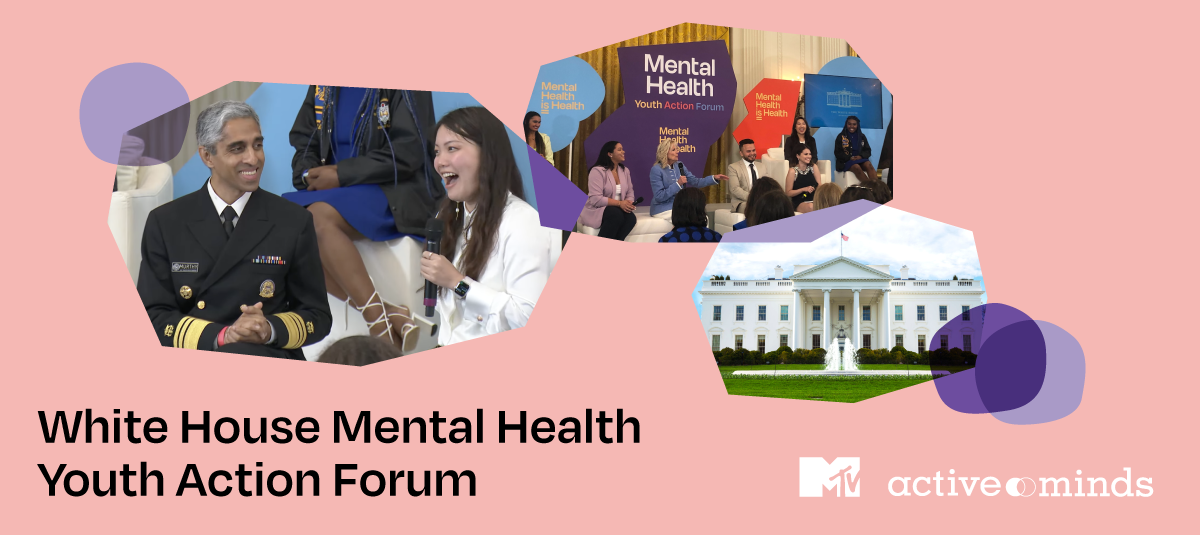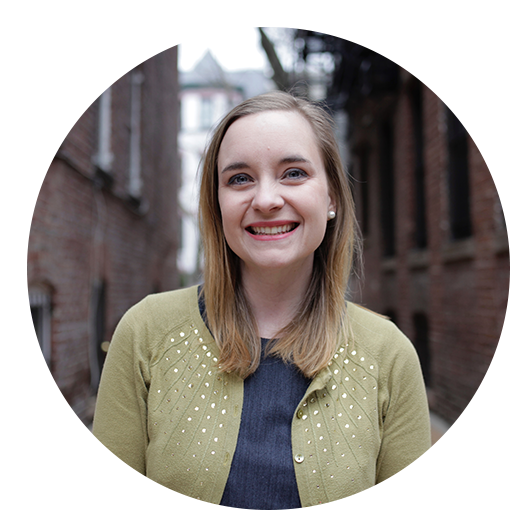Today, a group of thirty youth mental health leaders, including five affiliated with Active Minds, presented creative, thought-provoking solutions to the youth mental health crises currently unfolding in our nation. The inaugural Mental Health Youth Action Forum, created by MTV Entertainment, and featuring mental health nonprofits, senior officials from the Biden-Harris administration, and special guest mental health activist Selena Gomez, is a monumental step in our continued efforts to bring national attention to mental health consistently.
I’ve had the privilege of working with the young adults leading the charge at the forum over the past few months. Many of them I’ve known for years through my work at Active Minds. I’ve seen their passion, heard their stories, and encouraged them to share their perspective on their campuses, in their communities, and even now on a national stage. Their voices are needed and their solutions are incredibly valuable.
For nearly two decades, Active Minds has advocated that youth and young adult voices be at the forefront of mental health conversations – today, the rest of the country got to see the creativity, innovation, and passion that these young adult leaders have.
I’m walking away from this experience feeling reenergized knowing that the next generation is confident and capable of addressing the complex issues currently facing them. Now, I want to share my top takeaways from the forum with you, to help keep the conversation going on and inspire all of us to continue to include young adult voices at the table whenever possible:
-
We need youth with lived experience at the forefront.
For any other public health issue, experts agree that it is not best practice to act on a community; rather you act with the community – and even better, you are led by the community. This field needs innovation and new ideas. Engaging youth as partners is not just the “right” thing to do or a heart-warming talking point – it’s smart and will move the needle.
-
Mental health is a social justice issue.
I’ve been amazed and inspired by participants over the past couple of months as they ensured that their ideas center the experiences and needs of marginalized communities. Today’s youth are defining “mental health” as racial justice, LGBTQ+ wellbeing, and affordability of care. So many aspects of our lives can affect our mental well-being, and we need to be advocates and allies in all areas of our life if we are to truly change the culture around mental health.
-
The future of mental health requires authentic storytelling.
There is a lot of “noise” out there when it comes to mental health, especially on social media, including misinformation, toxic positivity, and recycled self-care content. Youth are craving authentic story-sharing that validates, confronts, and builds social connections around the hard realities for many in trying to access mental health care in the U.S. The message my group of youth said they most wanted to hear? “You have a story, you’re qualified to tell it, and now’s the time.”
While this forum was a major step in bringing attention to youth mental health, there are also ways that we can take action and be advocates in our daily lives. As part of Mental Health Month, Active Minds is sharing thirty-one simple ways to include mental health in our everyday, including a collection focused on public action. This includes exploring new tools such as Evokate, engaging your community through fundraising, signing the “Here for You” pledge, and more. View the full list of actions here, and make a plan for what step you’ll take to continue the work that our young adult advocates have started. I’ll be doing the same.




